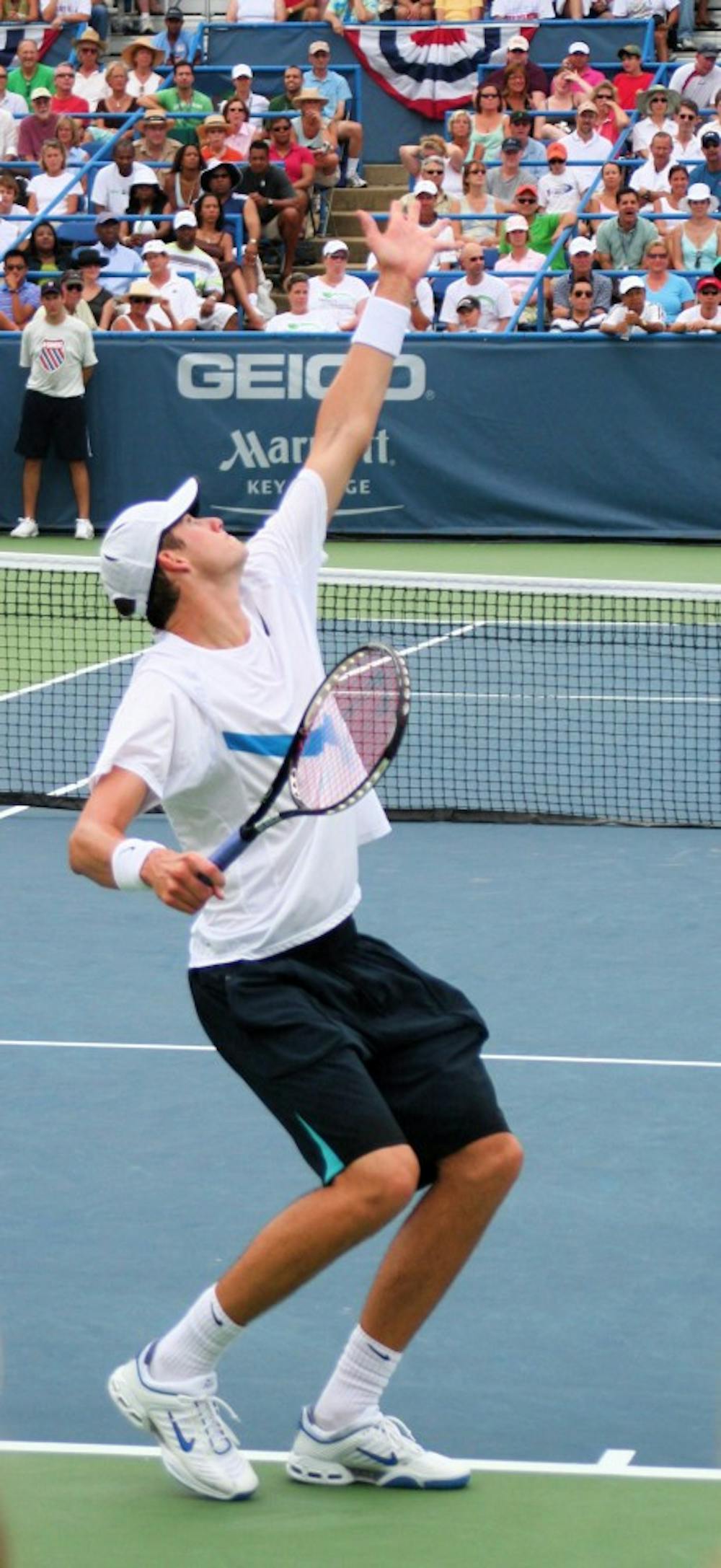The U.S. Open, the last of the four tennis grand slams, continues this week in one of the most recognizable places in America: New York, New York. American tennis players, on the other hand, aren’t so recognizable.
Long gone are the days when an American man kissed the surface of the silver-clad U.S. Open trophy. Long gone are the days when an American man stood on top of the ATP rankings. (Also long gone are the days when Andy Roddick, the last American male to fulfill this position, was single, not yet married to supermodel Brooklyn Decker. But that’s a separate issue.)
For today’s casual American tennis fan, the U.S. Open, and all other tennis tournaments, are of minimal interest. Because there is no American to support, Americans care less about who wins. We like to think of athletes as one of our own, and when none of our own play at the U.S. Open, we don’t watch it.
When we do care who wins, we tend to automatically assuming it’s either Rafael Nadal or Roger Federer, or more recently Novak Djokovic or Andy Murray. And with those four guesses we have a pretty high chance of being right — the foursome have won 39 of the last 43 majors dating back to 2004.
The casualness with which Americans enjoy sports was evident this past summer during the 2014 FIFA World Cup. We rooted for the United States out of national pride — not out of a deep love for soccer. As a country, we care about sports we’re good at — and currently, we’re not especially good at soccer or tennis.
Our last two remaining men at this year’s U.S. Open were Sam Querrey and John Isner. They both lost in the third round. Since turning pro in 2006, Querrey has only won seven career titles — no mean feat, but certainly not one comparable to American greats of years past. Roddick had won more than 20 career titles after his first eight seasons. Querrey has not gotten past the fourth round in any grand slam, with his best results occurring in 2010, when he reached the fourth round of both Wimbledon and the U.S. Open.
Isner, who turned pro only a year after Querrey, also hasn’t picked up the mantles of Roddick, Pete Sampras or Andre Agassi. Known for his powerful serve, Isner has only won nine career titles since turning pro in 2007. Isner’s best result in a Grand Slam came in 2011, when he reached the quarterfinals of the U.S. Open.
On the women’s side, Serena Williams is holding on to American tennis for dear life, but has yet to win a major this year. Nonetheless, she is still alive in this year’s U.S. Open, and continues to be the most dominant woman and American player on the tour.
Meanwhile, sister Venus Williams’ level of play has decreased dramatically since her diagnosis with Sjogren’s Syndrome, an autoimmune disorder. Sloane Stephens has shown promise, only to fall in the second round of this year’s U.S. Open. Melanie Oudin became America’s sweetheart in 2009 after reaching the Round of 16 at Wimbledon and the quarterfinals of the U.S. Open, but has since fallen off the face of the tennis world. She failed to qualify for the women’s singles draw at this year’s U.S. Open, but is still alive in the doubles bracket.
New York’s Ellis Island represents the pinnacle of American promise for European immigrants. Now that dream is fully realized in the tennis realm, with Arthur Ashe Stadium, the main show court at the U.S. Open, showcasing players from Spain, Switzerland and Serbia.
But for the casual American fan with no one to root for, enthusiasm has turned to apathy in a sport which once regularly turned out homegrown champions.







